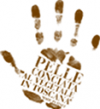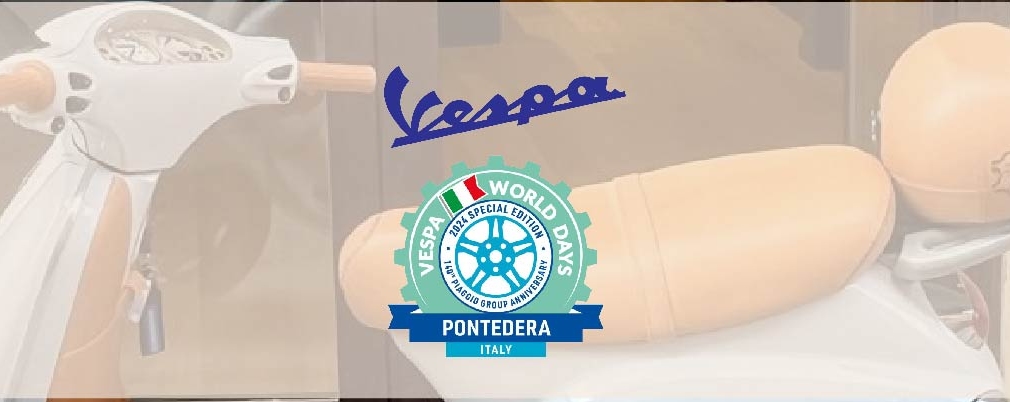It is not easy to write an article in a few lines about the dedication, creativity, and courage that has lined the path of companies that successfully produce. In fact, this space could have been used in other ways, but we decided to share with readers our reflections that have been formed by years of passion for “know-how”. When you take into account the crises of the last decades, and the tireless adherence to the values and beliefs in Made in Italy, ironically, the best definition for these artisinal craft companies is: “survivors”.
Entering the Third Millenium, whether we like it or not, we have become “planetary citizens” and participants of a continuous and unstoppable transformation of everything. Not only does this signify a paradigm shift, but also a turning point that necessarily implies a more mature self-awareness and what we have become as a society. Because of this, the current vision of productive reality should similarly have a wider scope to become disseminators of ethical values and a point of contemplation.
The companies, which are in the “battlefield” everyday, have faced many difficulties to develop awareness of not only their value and knowledge, but also their skills and creativity beyond what we call “external circumstances”.
Made in Italy ok, but at what price?
This article wants to touch on a topic that we particularly care about – Made in Italy. In September of this year, the New York Times published an investigation that triggered quite a few reactions in the world of Italian fashion and production. The Times has highlighted how the “glorious made in Italy” is increasingly been associated with low cost due to the submerged economy present in many areas of our country. It also underlined how the “myriad of small and medium-sized manufacturing companies with an export vocation – the backbone of the country – the centuries-old foundations of the Made in Italy legend, have faltered in recent years under the weight of bureaucracy, rising costs, rising unemployment and the boom in cheap foreign labor, thus putting many companies hard on the need to reduce prices while trying to maintain the quality of the product“. So the Times asked this question Made in Italy, but at what price?
This is the question we have been asking ourselves for a long time.
We believe that Made in Italy is our knowledge, our provenance, our effort, our pride, our history, and our future. Starting from these words and from the Times’ investigation, we feel that this precious secular heritage should be protected and guarded with more love and attention in order to affirm that this excellence is recognized in the world.
We imagined having a rare diamond in our hands – a stone of inestimable value – wondering what our purpose should be. The answer for us is to guard it in order to be able to give it to future generations. The task of protecting it, of polishing it, and making it more and more luminous and precious, is not only the responsibility of a single person but of an entire community.
Made in Italy must be allied with Made in Ethics and Made in Magic
What if we left for a moment in a time machine and could fly into the future? Perhaps, as the Times has written, there will be those who have sold off and debased this precious heritage. I think that history, traditions, the beauty of a people can never be destroyed if they are passionately transmitted from generation to generation, combining Made in Italy with Made in Ethics and Made in Magic.
For Made in Ethics we mean “putting the man at the center“, remembering the importance of the individual value of each person who, if stimulated, appreciated, and incentivized, has the possibility to bring “the best of himself” not only into the environment in which he works but also into society.
A defined supply chain and ethical production should be at the center of a company’s core values. We know very well that it is a difficult challenge – but not impossible. Dante, a true man made in Italy, reminds us that greed, avarice, and gluttony are among the worst evils of society, but we do not want to include the problems of illegality and unreported employment, that we hope can be resolved by the State and by a radical change of mentality and paradigm shift. We instead must refocus and emphasize that in today’s world, it is no longer enough that a product is “branded Made in Italy”. Today, it should be ethically produced. That is, born and made not only through the use of “sustainable” materials but also and above all with respect to a series of factors ranging from dignity to legality and with the transmission of knowledge.
Gandhi said: “You should be the change you want to see in the world” and humbly after such words also a concept like “Ethically Made” could be the foundation for a change of pace and vision in a period in continuous and rapid transformation in which a profound understanding of the role of the individual is needed. Perhaps the possibility of choice lies in knowledge and awareness.
Daily, our company – like many others – tries to convey the uniqueness and beauty of Italian artisanal creations to those who approach us. In our production world, we combine classicism and modernity. A combination that, when applied to the Made in Italy, it is made neither classic nor fashionable, but always current and always contemporary, much like the works of the great artists.
And it is from the great artists of the past that we want to connect to the concept of Made in Magic. That is, Magic defined as manual creativity and thought. Geniuses like Michelangelo, Tiziano or Botticelli, to name a few, were magical. Their hands, like enchanted sticks, moved, linking to thought and heart, creating those masterpieces that have come to us through the centuries. “The work of the hands” combined with the modernity of the instruments and thought means that craftsmanship and dexterity can have a prestigious role in the world.
The so-called “art of tradesmen” is a precious treasure, not to be forgotten and handed down especially to young people who, moving simultaneously in the technological and fantasy worlds, could not only continue the tradition but also make improvements.
So, returning to the Times’ investigation, which accuses the Made in Italy world of being largely built on the exploitation of people and on a low-cost production and denounces a situation that causes damage and problems to our economy, we would like to bring to attention the diversity that exists between the various realities present in the Italian territory. Also, we would like to bring to light the will that many of us have to continue on a path of growth, even in the difficulties, so that there should be no more commentaries like those of the Times.
We would like the mantra to be Made in Italy, Made in Ethics, Made in Magic and we will try to sing it every day.
Federica Terrida



